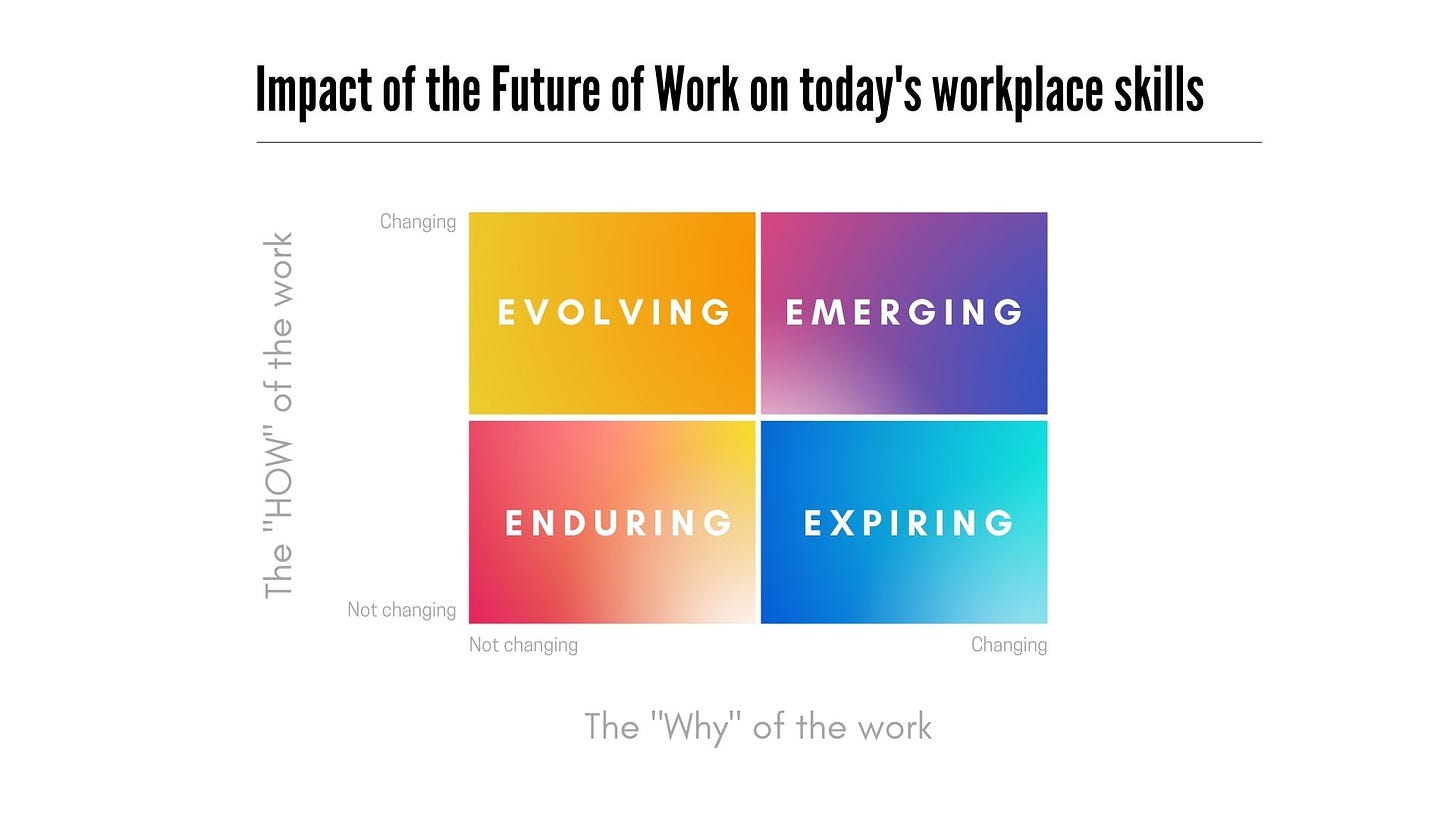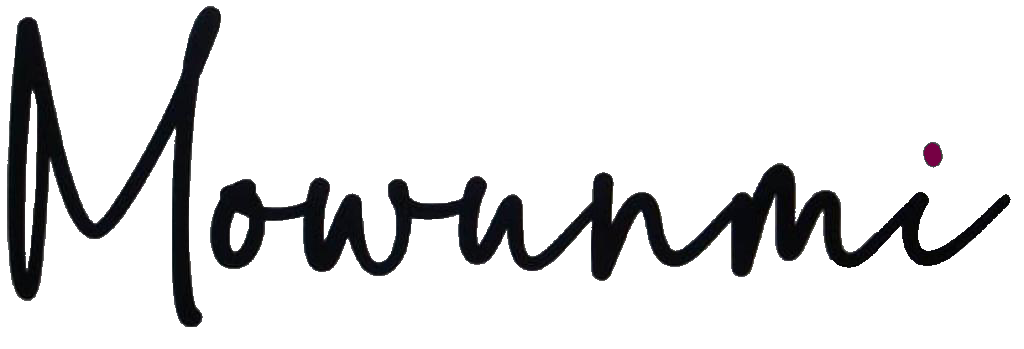If you are a knowledge worker, you have a combination of skills through which you deliver your daily work. Skills for processing information, utilizing infrastructure, and working with or managing individuals. As the concept of work changes with time, so do these skills. The Future of Work reality is modifying what competence looks like for several professional roles.
Workplace skills are changing on two dimensions: the WHY and the HOW.
The WHY, or reason for conducting the work, is changing for many information processing skills. The need to process information into reports is shifting from answering descriptive (“What happened?”) and diagnostic (“Why did it happen?”) questions to including the need to answer predictive (“What will happen?”) and prescriptive (“How can we make it happen?”) questions.
The HOW, or tools, techniques, and templates for conducting the work, is also changing. Not only is how we process information changing, but how we manage physical resources and collaborate within and across teams.
What this means is that all the skills you require for work can be mapped on a continuum based on the degree of modification happening to the “Why” and the “How” of that skill. There are four categories of skills defined by the extent of change:
- Enduring,
- Evolving,
- Emerging, and
- Expiring.
We can express these categories in a matrix, with each quadrant defined as follows:

- Quadrant 1: EVOLVING. The “How” is changing, but the “Why” is staying the same. Skills in this category include Teamwork. New collaboration tools and apps like Notion, Slack, Teams, and teleconferencing solutions like Zoom are changing how teams share knowledge, tasks, and work efforts. But the core intent—people working together to deliver outcomes—remains the same.
- Quadrant 2: EMERGING. Both the “How” and “Why” are changing. Many tech roles are in this category: for instance, data roles are shifting from a core intent to store, file, and maintain database records to include a need to make sense of the data to answer business questions through analytics. software development, etc.
- Quadrant 3: ENDURING. The “How” and the “Why” remain the same. Core people and interpersonal skills e.g. Emotional Intelligence are in this category. This is because the mechanisms for people management are founded on the principles of human connection, empathy, shared understanding, and interests that stay the same.
- Quadrant 4: EXPIRING. The “Why” is changing, but the “How” is staying the same. Skills in this category include Database Management. The core reason for performing those tasks—data storage and data entry – is shifting. Data storage is now a means and no longer an end in the data management process, and data entry is focused on generating more digital and less physical documents.





No Comment! Be the first one.